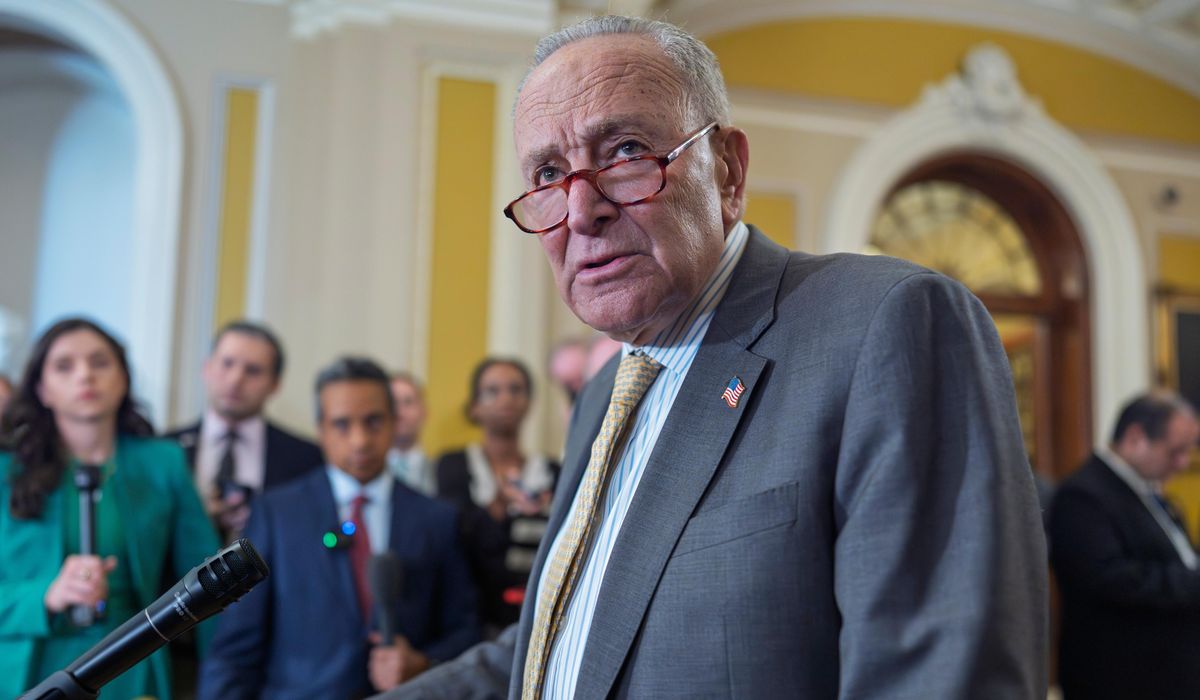


Most Senate Democrats on Tuesday temporarily put aside their frustrations with the Trump administration’s handling of government funding and joined Republicans in teeing up action on bipartisan spending legislation.
In a 91-7 test vote, the Senate cleared an initial filibuster on a fiscal 2026 appropriations bill containing funding for the Veterans Affairs Department and military construction projects.
The initial vote was on the House-passed version of the bill, but the Senate plans to replace that text with its own version. The Senate measure provides $153.5 billion in discretionary funding, $1.4 billion more than the House version.
The Senate is also likely to add two other spending bills — measures funding the Agriculture Department and the legislative branch — that, like the veterans’ funding bill, have been reported out of the Appropriations Committee with broad bipartisan support.
The successful test vote comes as Democrats have warned that Republicans’ use of the filibuster-proof rescissions process to cut spending Congress previously appropriated undermines the prospects for bipartisan dealmaking.
“Republicans are making it much harder,” said Senate Minority Leader Charles E. Schumer, New York Democrat.
Congress needs to pass the 12 fiscal 2026 appropriations bills by Sept. 30 or a temporary stopgap continuing current fiscal year funding. A stalemate on either would lead to a government shutdown.
Mr. Schumer said Democrats felt comfortable beginning debate on the veterans’ spending bill because it “was done in a bipartisan process, no question.”
“It undoes many of the awful DOGE cuts to veterans,” the New York Democrat said, referring to the Trump administration’s Department of Government Efficiency, formerly led by billionaire Elon Musk.
Democrats “look forward to the amendment process” for the appropriations legislation, Mr. Schumer said, suggesting his party’s support on the final product is not guaranteed.
Senate Majority Leader John Thune said Republicans are giving Democrats “what they’ve been asking for, [which] is a bipartisan appropriations process.”
Mr. Schumer said Mr. Thune contradicted that aim with last week’s Senate vote on a partisan rescissions package cutting $9 billion in foreign aid and public broadcasting funding. He said that move was “the antithesis of bipartisan.”
The White House has said it will submit additional rescissions packages for Congress to approve. The rescissions are savings DOGE identified but Congress must codify.
Sen. Chris Coons, a Democratic appropriator, said he voted to advance the veterans’ funding measure because it is a bipartisan work product, but he still has broader concerns about the Trump administration’s effort to undercut cross-party spending deals.
White House Office of Management and Budget Director Russell Vought, who has repeatedly defended the use of rescissions, further irritated Democrats last week when he advocated for a less bipartisan appropriations process.
“With the press coverage that there is a second rescission package coming from OMB, it seems to me that Trump and his OMB director and many in the Republican caucus are determined to end our appropriations process,” Mr. Coons told The Washington Times. “I’m going to keep trying, because, frankly, the alternative is a Republican shutdown.”
The Daily Signal reported Tuesday that the White House will soon introduce another rescissions package that will include cuts to the Department of Education.
Democrats will want to offer amendments to the Senate appropriations measure to try to put some checks on the Trump administration, said Mr. Coons and fellow appropriator Sen. Jeanne Shaheen, New Hampshire Democrat.
Mr. Thune, who made restoring regular order on appropriations a key pledge in his campaign for GOP leader last fall, said he’d like to have an open amendment process.
“That will require a certain level of cooperation from Democrats, but I hope that that exists,” he said. “And our side also has got to cooperate on that too, because anybody can block unanimous consent. But I’m hopeful we’re going to have a fulsome process.”
• Lindsey McPherson can be reached at lmcpherson@washingtontimes.com.
